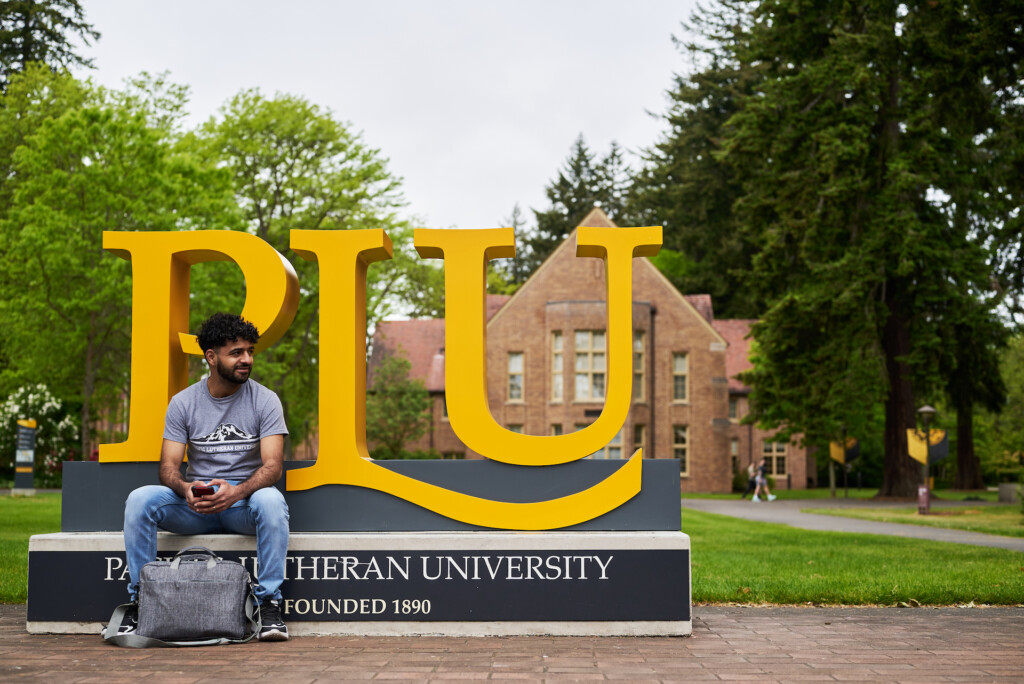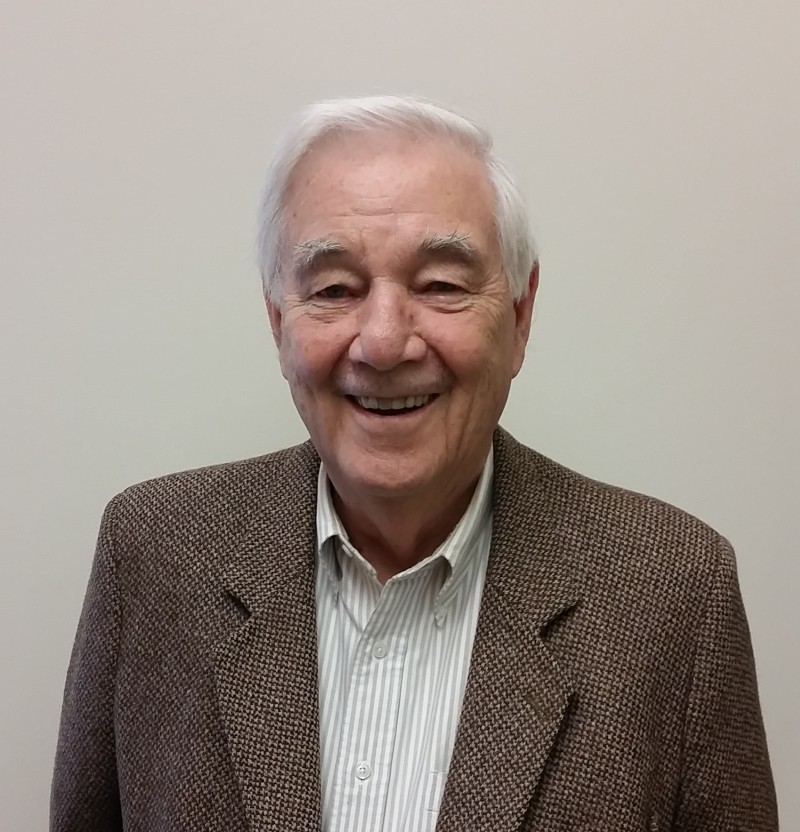Page 27 • (1,396 results in 0.023 seconds)
-

TACOMA, Wash. — Earlier this week, officials from the University of Puget Sound and Pacific Lutheran University announced the signing of a Memorandum of Understanding that will streamline the process for both universities’ current students and alumni applying to select graduate programs at the partner…
held enterprises, and supply chain management. The marketing analytics program prepares students for careers in data analysis, business marketing, social media, and brand management. The kinesiology program combines academic rigor with an emphasis on real-world training and practice and students may specialize in sports psychology and exercise science. To be eligible for streamlined graduate admission, PLU and Puget Sound alumni will have a cumulative GPA of 3.0 or above and complete an online
-
General Use Policy Pacific Lutheran University students, faculty, and staff are responsible for legal and ethical use of computers and the network. Activities considered to be in conflict with this policy include, but are not limited to, the following: Spreading viruses or causing disruptions on the network. Unauthorized access to restricted or personal computers, data,...
General Use Policy Pacific Lutheran University students, faculty, and staff are responsible for legal and ethical use of computers and the network. Activities considered to be in conflict with this policy include, but are not limited to, the following: Spreading viruses or causing disruptions on the network. Unauthorized access to restricted or personal computers, data, or programs or knowing use of restricted computers, data or programs accessed or acquired by someone else… Sharing a password
-
Pacific Lutheran University provides information technology (IT) services in support of the university’s educational mission. IT services include but are not limited to computer labs, data and voice networks, classroom and instructional technologies, and administrative systems. Policies related to IT services and resources extend also to copyright infringement, intellectual property, content accessed or downloaded over...
Pacific Lutheran University provides information technology (IT) services in support of the university’s educational mission. IT services include but are not limited to computer labs, data and voice networks, classroom and instructional technologies, and administrative systems. Policies related to IT services and resources extend also to copyright infringement, intellectual property, content accessed or downloaded over the PLU network, and appropriate use of communication systems & services
-
PLU network services have security measures in place to protect the loss, misuse, or alteration of information under university management. All activity on PLU network servers may be monitored, recorded, or backed up. Pacific Lutheran University automatically logs certain data generated by accessing and navigating PLU Web: Network addresses of those who use PLU network...
PLU network services have security measures in place to protect the loss, misuse, or alteration of information under university management. All activity on PLU network servers may be monitored, recorded, or backed up. Pacific Lutheran University automatically logs certain data generated by accessing and navigating PLU Web: Network addresses of those who use PLU network services, accompanied by the date and time of use, may be collected to help diagnose server problems, limit access to licensed
-

Professor Emeritus, in Memoriam | School of Business | David E.
the U. S. (with Laurence Geri) The New Face of Government Knowledge Management in the Public Sector: Blueprint for Innovation in Government. Public Utilities: Meeting 21st Century Management Challenges (1-2 editions) On research methods: Research Methods for Public Administration and Non-Profit Organizations (1-4 editions) Research Methods in Political Science: Quantitative & Qualitative Approaches (1-2 editions) Case Research in Public Administration Nonsampling Error in Social Surveys On
-
The following list of was complied for students seeking opportunities in internships and post-baccalaureate programs that have annual or recurring cycles.
), Electrical Engineering, Geosciences, Mechanical and Aerospace Engineering, Operations Research and Financial Engineering, Physics, Princeton Plasma Physics Lab, Psychology, and Quantitative and Computational Biology Sarafan ChEM-H/IMA Postbaccalaureate Program in Target DiscoveryStanford University2 yearsMultidisciplinary University of Washington (UWPREP)University of Washington and Fred Hutchinson Cancer Research Center2 yearsBiomedical sciences Virginia-North Carolina Alliance for Minority
-

Professor Emeritus, in Memoriam | Master of Business Administration | David E.
the U. S. (with Laurence Geri) The New Face of Government Knowledge Management in the Public Sector: Blueprint for Innovation in Government. Public Utilities: Meeting 21st Century Management Challenges (1-2 editions) On research methods: Research Methods for Public Administration and Non-Profit Organizations (1-4 editions) Research Methods in Political Science: Quantitative & Qualitative Approaches (1-2 editions) Case Research in Public Administration Nonsampling Error in Social Surveys On
-
Optometrists are health care providers who examine, diagnose, treat, and manage diseases and disorders of the visual system.
: science, reading comprehension, physics, and quantitative reasoning. After finishing an O.D. degree, some optometrists complete a 1-year residency program to get advanced clinical training in the area in which they wish to specialize. Additionally, all states require optometrists to be licensed. Prospective optometrists must have an O.D. degree from an accredited school and must complete all sections of the National Board of Examiners in Optometry exam. Some states require individuals to pass an
-
Optometrists are health care providers who examine, diagnose, treat, and manage diseases and disorders of the visual system.
: science, reading comprehension, physics, and quantitative reasoning. After finishing an O.D. degree, some optometrists complete a 1-year residency program to get advanced clinical training in the area in which they wish to specialize. Additionally, all states require optometrists to be licensed. Prospective optometrists must have an O.D. degree from an accredited school and must complete all sections of the National Board of Examiners in Optometry exam. Some states require individuals to pass an
-
The Wang Center Research Grant Program is designed to support students, faculty, and faculty-student teams that seek to conduct original research in an international setting.
Soul Wounds of Colonialism: First Nations Art Therapy and Creative Restorative Justice” 2022-2023Students: Nick Etzell, “Vocational Understanding and Effectiveness Abroad: A Case Study of Oxford” Jackie Lindstrom, “Researching Barriers to Healthcare Access for Migrant Women in the UK through Data Analysis and Interviews” Faculty: Dr. Emily Davidson, “Testimonio’s Future and Past: Remembering the US Invasions of Panama” Student-Faculty Teams: Dr. Giovanna Urdangarain with Ellie Dieringer, “Identity
Do you have any feedback for us? If so, feel free to use our Feedback Form.


